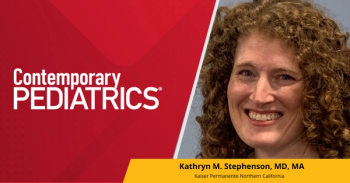
Renewed focus into Staphylococcus aureus risk in infants, with Aaron Milstone, MD
Aaron Milstone, MD, emphasizes the need for better recognition and prevention of Staphylococcus aureus infections in neonatal intensive care units.
Despite decades of scientific progress, invasive Staphylococcus aureus infections remain a persistent and deadly threat to infants in neonatal intensive care units (NICUs)—especially those born prematurely. Aaron Milstone, MD, MHS, pediatric infectious disease specialist at Johns Hopkins Children’s Center, has spent over a decade focused on reducing these infections and improving outcomes for the most vulnerable patients.
“I've spent the last 10 years trying to figure out ways to prevent these infections, and at times, it feels that the impact is not greatly recognized,” Milstone said. He noted that while neonatologists are aware of the risk, the relative rarity of fatal cases may prevent the issue from staying at the forefront of NICU care discussions. “Everyone knows they're there and they're happening, but they're not happening with a frequency that's high enough that it really is right in people's forefront.”
Milstone
In this context, Milstone emphasized the need to act. “By putting the data together and putting numbers around it, we're really trying to highlight target populations that are so at risk that it really hopefully will galvanize people to take further action,” he said.
Some guidance already exists. “In 2020, a working group from the CDC put out a document about strategies for preventing Staph aureus infections in children,” Milstone explained. However, he acknowledged that some adult infection prevention strategies haven’t been studied as thoroughly in pediatric populations, slowing adoption.2
Milstone also pointed to a role for pediatricians, particularly in providing anticipatory guidance to families with infants in the NICU. “Pediatricians spend a lot of time providing anticipatory guidance for families… they can remind parents that there are risks to babies while they're in the NICU and the family may do things to help protect the baby from those risks.”
He cited past research showing that parents can be reservoirs for Staph, just as they can transmit Group B strep. “There are other things we can recommend, like making sure they're washing their hands, not coming if they have a cold or fever, or wearing a mask to protect the baby,” he said.
Ultimately, Milstone believes that raising awareness and implementing proven prevention strategies can reduce the burden of S. aureus in NICUs. “There are strategies that work, and we are testing new strategies, which hopefully will come out and be effective as well."
References:
1. Jennings MR, Elhaissouni N, Colantuoni E, et al. Epidemiology and Mortality of Invasive Staphylococcus aureus Infections in Hospitalized Infants. JAMA Pediatr. Published online April 14, 2025. doi:10.1001/jamapediatrics.2025.0429
2. Milstone AM, Elward A, Brady MT, et al. Recommendations for Prevention and Control of Staphylococcus aureus Infections in neonatal intensive care unit patients. CDC. September 2020. Accessed June 6, 2025. https://www.cdc.gov/infection-control/media/pdfs/Guideline-NICU-Saureus-H.pdf
Newsletter
Access practical, evidence-based guidance to support better care for our youngest patients. Join our email list for the latest clinical updates.






